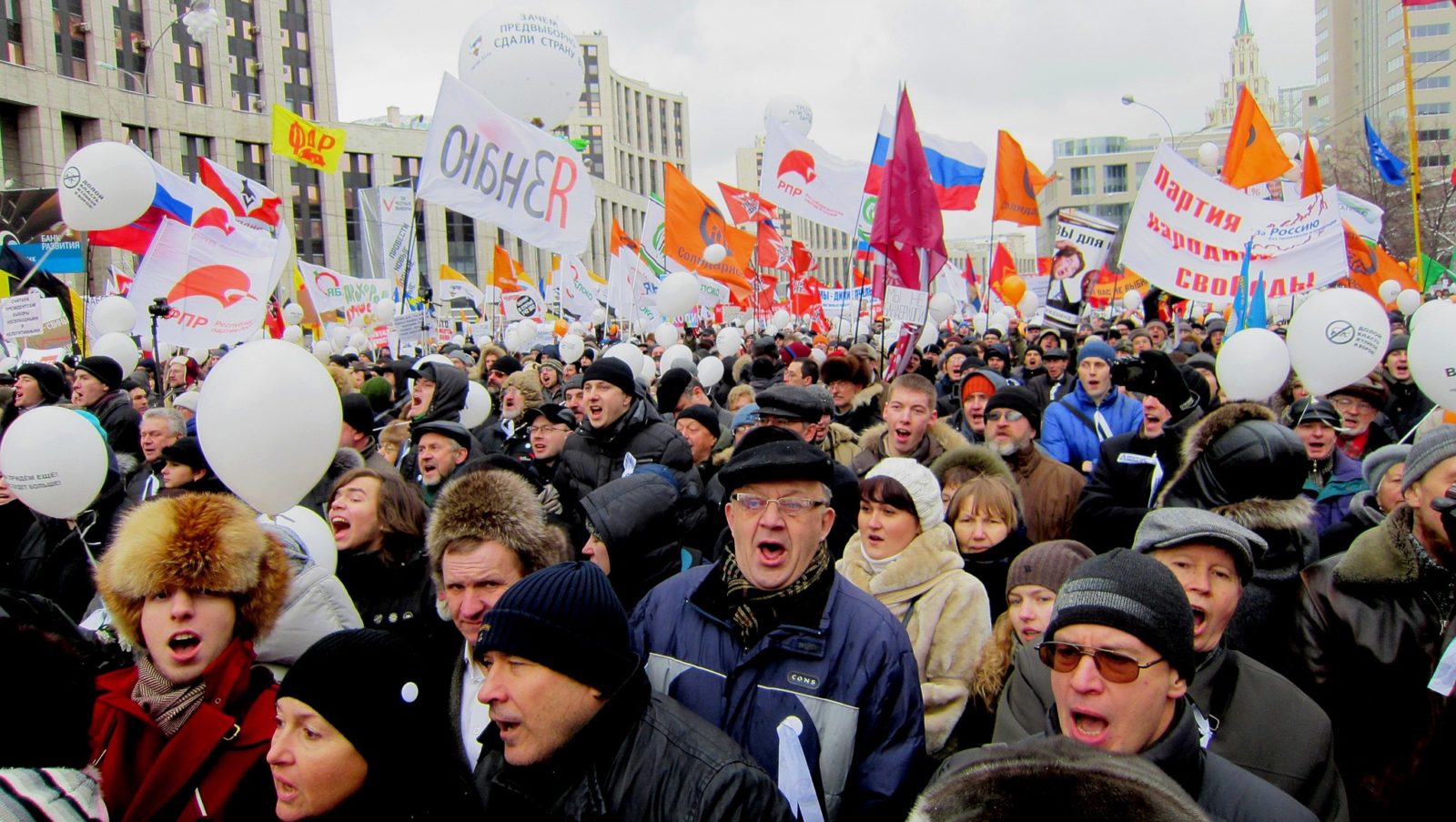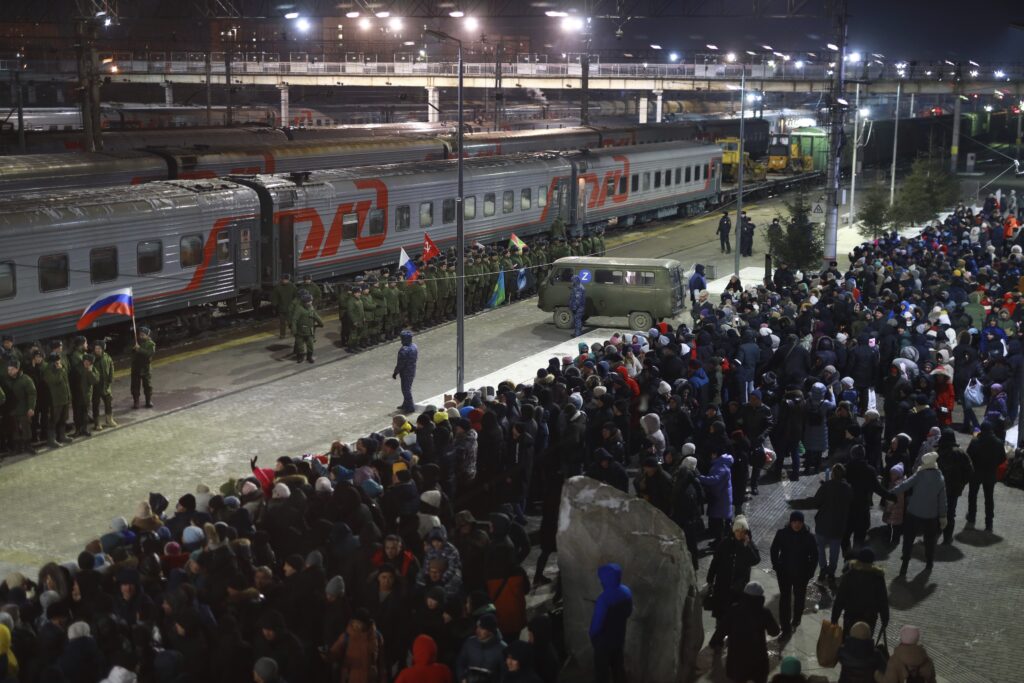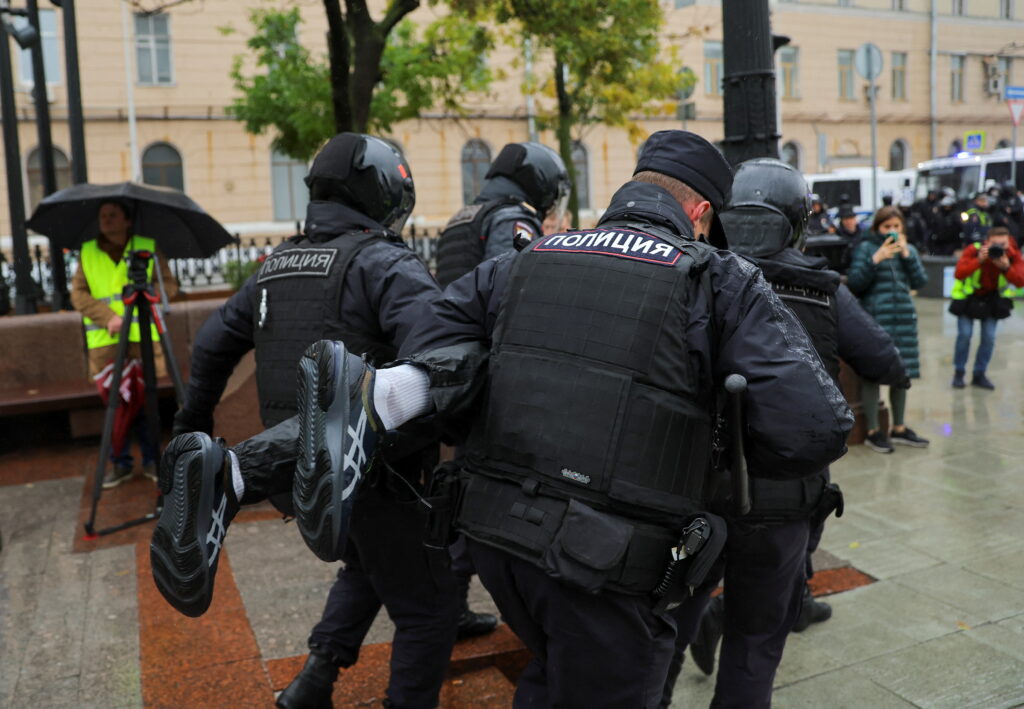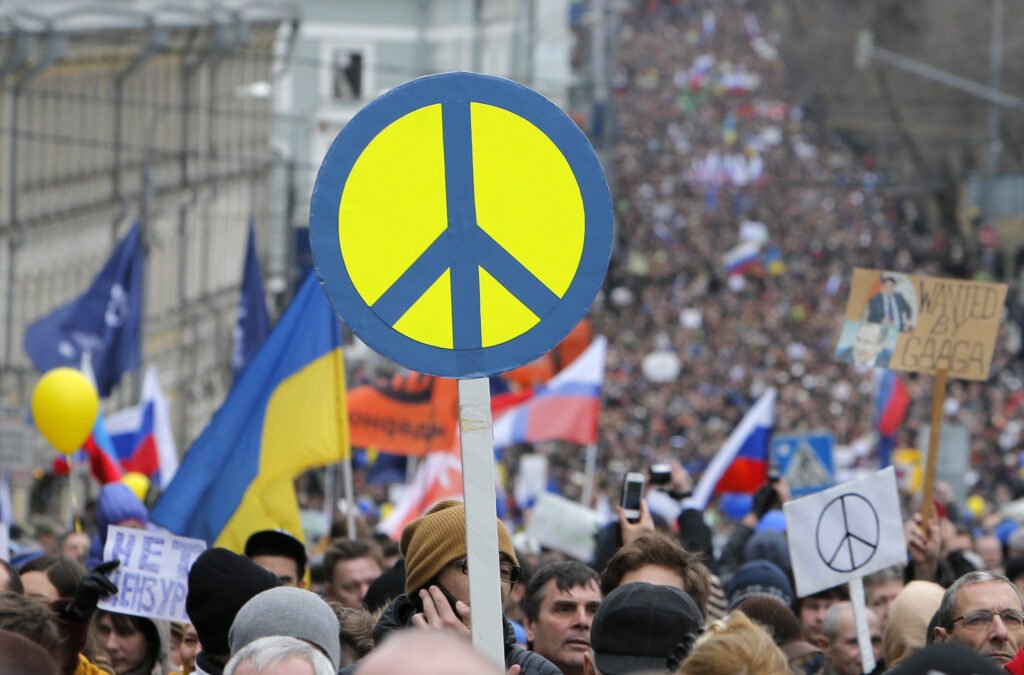If we ask an average Russian about the word that best describes the future of their country and their own prospects, ‘uncertainty’ will be among the most popular answers. Meanwhile, the famous notion of ‘stability’ is the main mantra of Russia’s current authorities. This term stands for stable minimum standards and a survival strategy rather than a sustainable development strategy. It is the kind of stability that is supposed to guarantee existence but without the element of improved quality of life in the future. Undoubtedly, the state supports such sentiments but many Russians look to the future with fear.
A study conducted by the Levada Center jointly with Carnegie indicates that Russians are equally divided as regards their view on change: 41% opt for minor changes while 42% support radical change. However, these are just verbal declarations: as soon as a change begins, the number of opponents of reforms might grow substantially. Radical change is more likely to be supported by the poor strata while young people, on the contrary, are less likely than other cohorts to want dramatic changes. However, we cannot say that the attitude towards reforms is determined only by socio-demographic parameters. This also holds true for many other socio-political factors: age, gender, wealth and education do not always determine the political preferences of the Russian people. Obviously, apart from demographics, it is important to consider people’s worldview and regulatory factors. The new lines of social divisions run along cultural and ideological themes present in the public debate, which gives sociologists more work and makes their job more complicated.
Let us try to describe two ideal types of attitudes to Russia’s future: that of a pessimist and an optimist. When discussing my hypotheses, I will rely on findings from a number of studies conducted by the Levada Center in recent years.
Optimists
One of the most important factors that guarantees optimism regarding the future of Russia is a confidence in being protected by the law, which is most clearly expressed in having fundamental financial stability. Today, people in Russia are relatively confident about their own financial future as long as they have already adapted to living in their country and have gained a stable position in society. In comparison with others, they are generally less interested in significant political change since they link their own welfare with the current authorities and their performance. While this is no big news, the disfranchised and socially oppressed groups always provide a fertile breeding ground for any reformist or revolutionary trends. Today, slightly less than a half of all Russians (46%) classify themselves as either lower middle class or lower class whereas an approximately the same proportion (48%) think they represent the middle part of the middle class and only a small percentage see themselves as belonging to the upper middle class or to more affluent groups.
Which of the following social strata would you say you and your family belong to?

Confidence in one’s own economic viability is coupled with a certain set of attitudes. Firstly, those people are confident about the success and good prospects of the Russian economy. This is the flip side of the problem of financial status but projected onto the general living standard in the country. Optimism about the future is rooted, among others, in the respondents’ confidence that their country is heading in the right direction. Today, a half of Russians are convinced that this is the case. The number of those who think that ‘things are not all that bad, living here is OK’ reached the pre-crisis figure for the first time since September 2014 (32% of Russians), while last year the respective figure was lower by about 10 percentage points. At the same time, a significant increase in the number of labour protests in recent years reflects a growing societal polarisation.
In addition to economic factors, the ‘portrait’ of optimists also includes high social responsibility manifested, for example, in concern about environmental issues or human rights violations in public institutions. However, those are often merely declarative statements, concealing a far less noble aspiration to survive in a hard-nosed society. Indeed, we see a rather small number of local initiatives and grassroots activities in modern-day Russia.
However, some standards of civil responsibility are firmly rooted in people’s thinking. This also applies to declared political values. More than a half of Russians (52%) believe that governance in their country should be based on free elections and democracy, while 32% of their compatriots believe in the rule of ‘a firm hand’. A substantial proportion of the respondents (15%) have no opinion on the matter.
One can say that these values are not sufficiently rooted or that real political behaviour does not correspond with the patterns of participatory democracy, yet the idea of a separation of powers and civilian control over the authorities has nevertheless become quite widespread. Russians are changing their thinking and behaviour under the influence of Western models to which they have been exposed via mass culture. Accordingly, being part of the global context means that certain norms are sustainable among the Russian public, such as those related to the environment. There is a clear link between the growing concern about environmental problems and an urban lifestyle as well as the level of education.
To what extent are you concerned about the environmental situation in your locality and its nearest vicinity? (Levada Center, May 2017)

Pessimists
The key issue that distinguishes the ‘pessimists’ in this study is their sense of social insecurity and uncertainty about the future. In this respect, they are in emotional opposition to the ‘optimists’. The pessimists tend to consider a negative scenario believing that their personal situation and the state of affairs in the country will gradually deteriorate. Importantly, the share of ‘radical pessimists’ is not very high: about 15–20% of Russians believe that the situation will definitely deteriorate while about a half of Russians believe that the economic situation will remain roughly unchanged. Notably, about a half of Russians think their current economic situation is below average, which means that the absence of growth is a depressing prospect for many.
How will the financial situation of your family change in the coming year?

Economic risks are coupled with a lack of self-fulfilment opportunities. Those who do not believe in the future of the country as a whole also feel they are unable to develop their personal potential and have a sense of not being able to integrate into the existing social system. The question of self-fulfilment is especially important for young Russians who are familiar with their Western peers and who do not identify with ‘traditionalist Russia’. Western patterns of consumption and behaviour have become a frame of reference for an increasing number of Russians. Qualitative research shows that the prospect of emigration is discussed quite regularly among the ‘progressive’ urban youth who have knowledge that can be appreciated abroad. The ever improving means of communication and transport mean that moving to another country ceases to be a problem. Focus group participants often say that people want to move from one country to another and that it is possible to work from Thailand or another country where living is comfortable. People who feel they are globally connected tend to be less interested in Russia’s political problems and to the ideology imposed by the state.
However, there is another category of pessimists, who recognise the lack of prospects but have no alternative ideological or financial resources. They often oppose the current authorities while, at the same time, supporting ‘Stalinist’ methods and/or nationalist slogans. The size of this group can be estimated at about 7–10% of the total population. Their pessimism can be called destructive as it is based on the desire for a ‘firm hand’ and deeply rooted paternalistic attitudes which, in most cases, are related to the inability of this group to secure an acceptable standard of living for themselves.
While this text analyses the current situation in Russia, it also echoes many processes occurring in other parts of the world. There is a growing gap between well-adapted, affluent social strata and poorly adapted groups who want a radical change. I would take the liberty to assume that the division into ‘reformers’ and ‘conservatives’ will determine not only Russia’s future but also the future of the world. The key question is: what is the foundation for optimism and confidence about the future? Is it the development of inclusive institutions, an open society, or a certain kind of ‘stability’ that turns out to be grounded in the fear of change? It would be wrong to claim that we can provide a final answer today. We will inevitably see more than one cycle of progressive change in future, followed by a rollback to previous positions.









